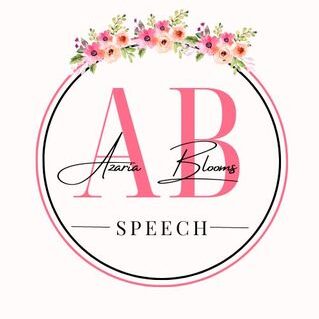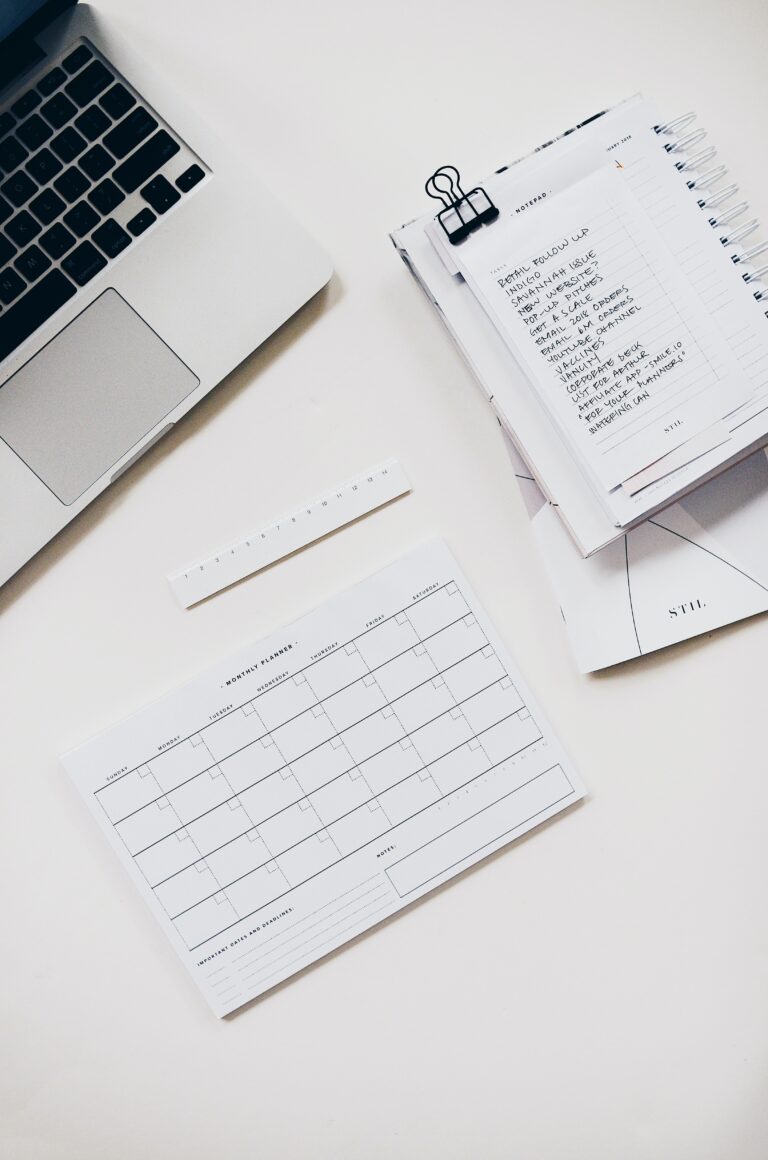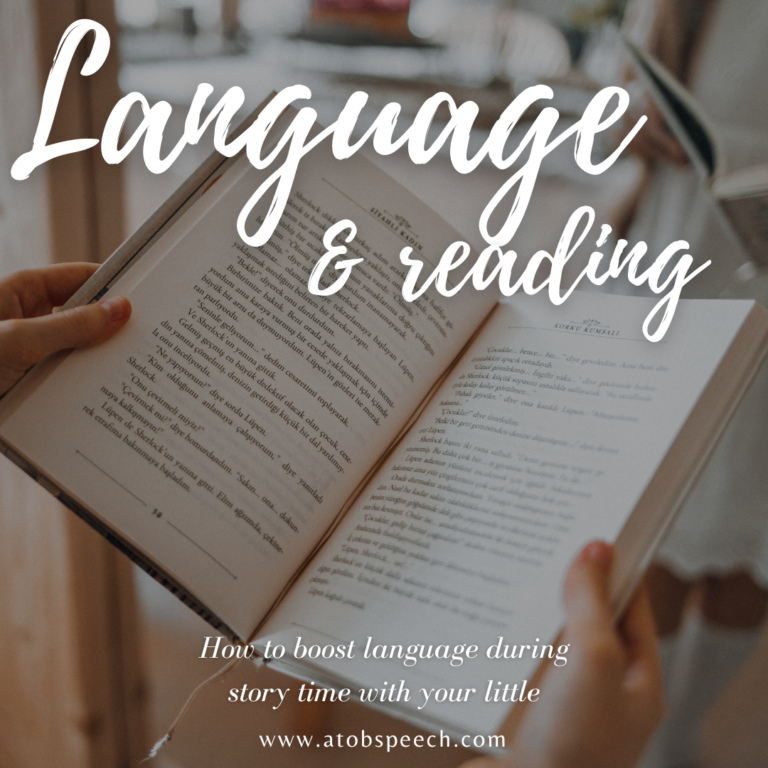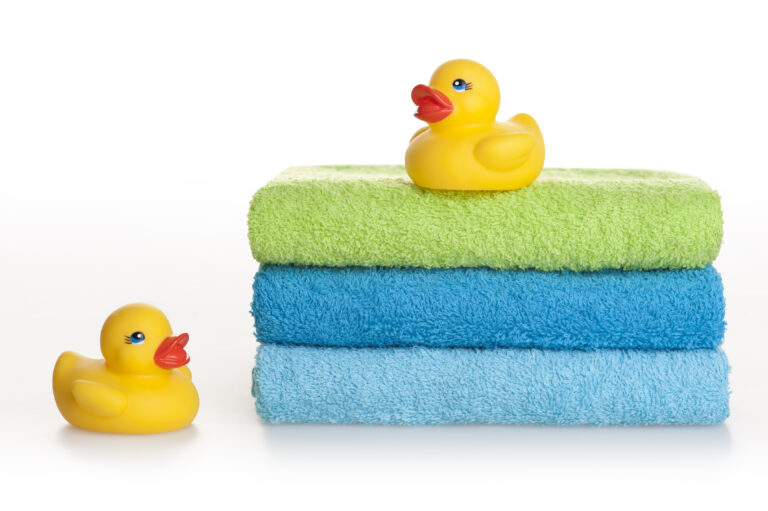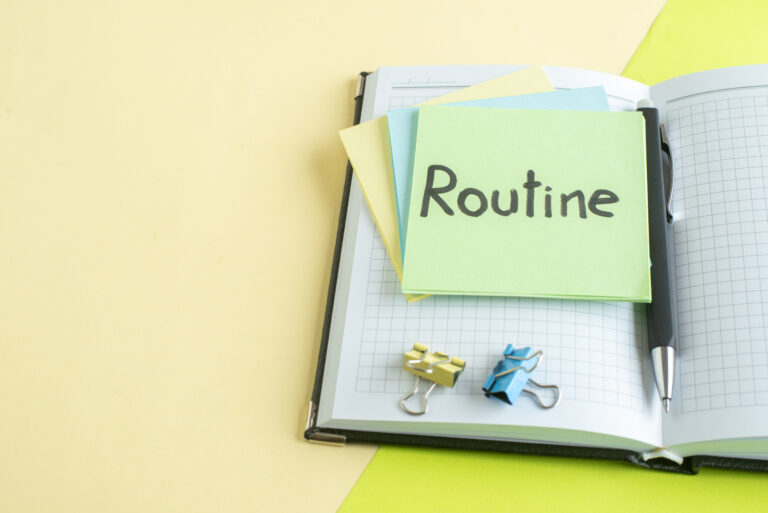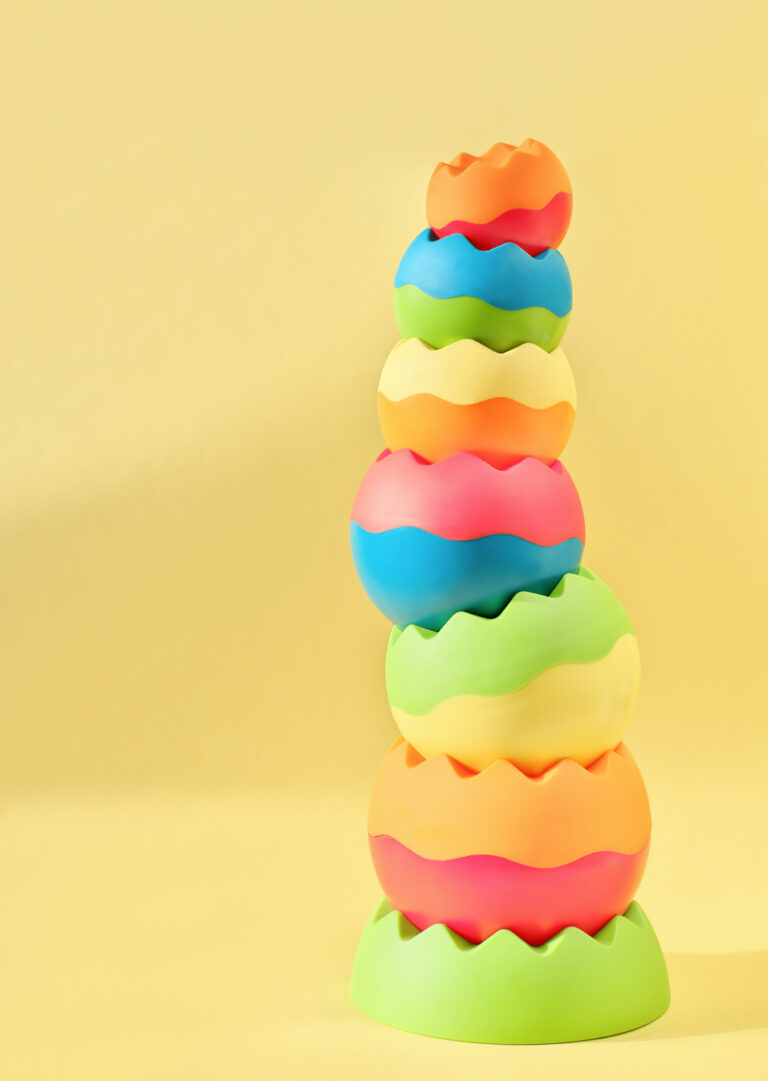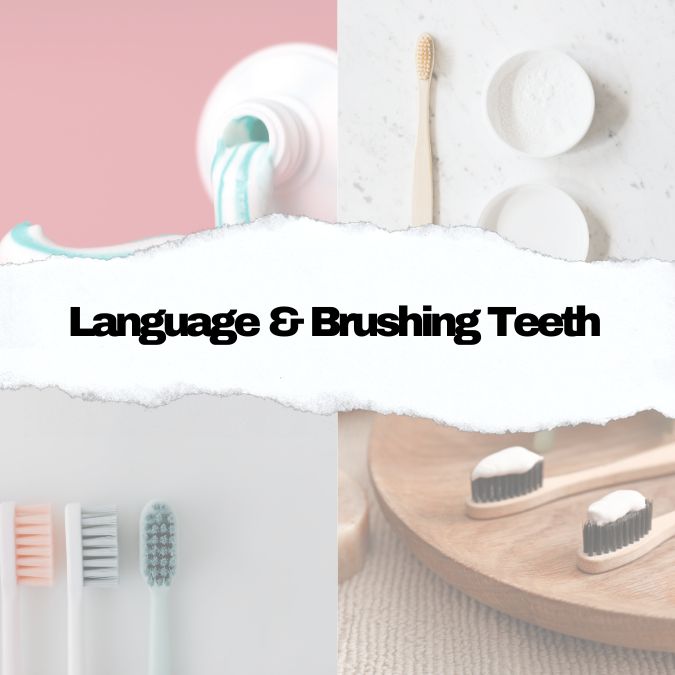Quick reminders: Please remember to keep your little away from anything not intended for children (refer to product manuals for guidance) and refer to manufacturers guide for safety precautions for any toys/activities recommended. Please see our full disclaimers here. T
In this series, we are focusing on routine-based language strategies to help us understand how to incorporate language strategies into the activities that we are already doing! We are all about working smarter and not harder! Chores are a part of our day-to-day routine. We might think of these as a mundane part of our day, but they are actually a great time to work on language development and enhance the vocabulary that your little one is understanding! We are going to focus on the laundry in this blog post to help us learn how to turn laundry time into language-rich learning!
Let’s review: why should I incorporate language into my routines?
Integrating language strategies into your routines can have a profound impact on communication skills, cognitive development, and even relationship building. Using routines as a way to incorporate language practice is a game-changer! This is because these are often parts of our day where you and your little are engaging in an activity together. This means that there are a lot of opportunities for shared engagement and attention (both looking at the same things at the same time)….these are the perfect opportunity to teach because your little one can start mapping what he/she is looking at and doing with the words that you are modeling. Routines are also consistent and semi-structured parts of our day…our brains love patterns! We are creating that connection to that consistent pattern and the language and vocabulary that is embedded in that task to help our little understand different terms to describe that pattern or routine in their day. Finally, CONSISTENCY! Routines are naturally consistent and repetitive parts of our day, that means no more wracking your brain to think about how you can get repetitions of certain words in…simply say them within your routine and you will automatically be providing that repetition that your little needs.
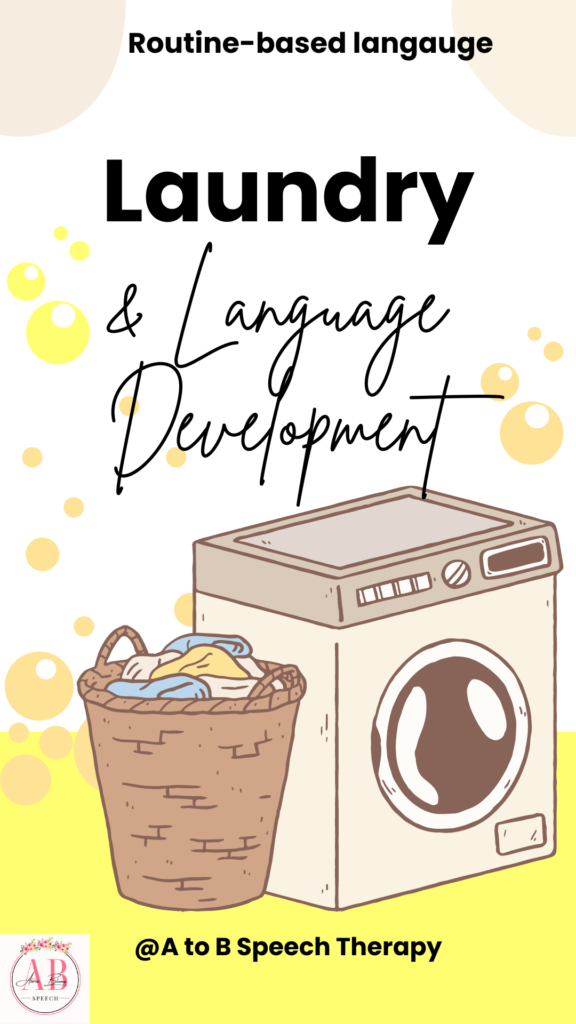
This post may contain affiliate links, this means that we could receive a commission when you click on one of our links and purchase something that was recommended. In some cases, we may be compensated for writing this post. Don’t worry, it is at no extra cost to you and all opinions and recommendations shared are truly our own! See our full policy here
Routine-Based Vocabulary:
During our laundry time, we are going to start thinking about what words we can model for our little. We want to think about words that are specific to the laundry, but also the words that are more ‘high utility’ and can be used across multiple settings. If you read our last blog post, we like to call these our ‘focus words’. These are words that hold a lot of meaning and we are ‘focused’ on teaching this word. If you are working with a speech pathologist, your SLP might have given you some ‘core words’ to work on with your little (in, go, more, want etc.). You can use these core words as your ‘focus word’ and simply add on laundry-specific vocabulary on top of the focus words! You might be folding laundry, or your little is sitting in their chair and watching you putting the laundry in and you can involve them by modeling the language or even getting them to help! You can have them help give you certain items (e.g. sock please) to get them involved as long as you are right there to keep them away from any items they can’t have, they can make ‘helping mommy’ the fun task of the afternoon!
What words can I model?
Need a reminder about focus vs. builder words? Check out our blog post here.
Focus word examples: more, go, push, in (hint: you can adjust these for your own!)
- Task example: putting laundry from the hamper into the laundry basket or folding laundry
- More + Clothes (repeat each time you take a handful of clothes to put into the basket or fold it and don’t forget to vary your pitch and facial expressions to make it exciting!)
- Hint: you can also add exclamatory words (ugh…whoop…plop!) as you go to create interest for your little
- Let’s put clothes IN… (more socks – add socks, more pants- add pants etc.) You can add a variety of focus words in to help make this more variable for example: In (socks IN, pants IN), go (ready,set…go *drop clothes in basket*), Put (put socks in, put pants in etc.)
How to model with extra vocabulary: Here are some extra ideas to model as you complete these tasks or use laundry ‘pretend play’
- Concepts, actions, and more: Wash, soap, suds, water, clean, dirty, spin, swish, soft, small, big, button, basket, zipper, warm, put in, take out, fold, open, close
- Names of each clothing item
- Names of family members (mommy’s socks, johnny’s pants etc.)
- Descriptive words to expand on your focus words: colors, senses (soft, fuzzy, scratchy), wet, warm, dry
Incorporate Stories
Turn chore time into story time for your older littles! You can create narratives about the ‘adventurous journey’ of clothes from the washer to the closet or the ‘epic battle’ against the dust bunnies under the bed and have fun with it! You can also point out the words in the books that you are reading and connect it to their experiences (ohhh…those clothes are dirty! Just like when you helped mommy wash our dirty clothes today!). You can even read a laundry-inspired book (I love ‘Mrs. McNosh Hangs Up Her Wash’ if you are looking for a cute one).
Practice Following Directions
- Use chore time to practice simple-step directions. You can make this easier or trickier depending on your little!
- – For very little ones, you can turn it into a game to help them learn the word (where is the sock? Sock, where are you?) and then help them find the item (sock) and put it in their hand and say ‘ you found sock!’.
- -Then, as they learn, you can say ‘sock, please’ and hold your hand out for them to give you the sock and repeat with different clothing items.
- – Once this is easy for them, you can start to have them bring the specific item to the basket and point to help them ‘sock IN the basket please’. You can work on the words ‘in, out’ with different baskets and objects!
- -When these tasks become super easy for your little, you can make it more complicated by keeping two baskets on the floor (different colors or sizes) and have your little ‘bring the XYZ’ to the (‘big/black/red’) basket’ (this is usually for older kiddos because there are a lot of concepts involved as well as memory! You can have an older brother or sister play along, too!
Sing Songs
- Create or find songs that you can sing during laundry time! One of my favorite tips is to take a song that you and your little one already know and just adjust the lyrics to make it all about laundry!
- Sample Lyrics to the tune of ‘apples and bananas’… I’m gonna wash, wash, wash, all of our clothes….it’s time to wash, wash, wash, everybody’s clothes. I’m gonna dry, dry, dry, all of our clothes….it’s time to dry, dry, dry, everybody’s clothes. I’m gonna fold, fold, fold, all of our clothes. It’s time to fold, fold, fold, everybody’s clothes.
Incorporate Pretend Play:
Pretend play can be such a fun way to practice using real life functional vocabulary words in a fun way! Think about the words that you practiced in the vocabulary section of this blog post and keep modeling these during play! I’m going to stick some of my favorite laundry pretend play sets here but remember you can be creative and use things that you already have as toys (e.g., plastic containers as ‘washers’, water bins to ‘pretend to wash’ baby clothes, etc.). Click the pictures below to find the toys on Amazon!
Final Thoughts
Laundry= bore no more! Don’t forget to add these simple language strategies and play-based activities into your day-to-day routine to help transform it into a language learning experience for your little ( not to mention fun!). As always, please remember that these are just general strategies not intended to replace the advice of your SLP. Consult with your speech therapist about ways that you can incorporate your little’s goals into this routine!
